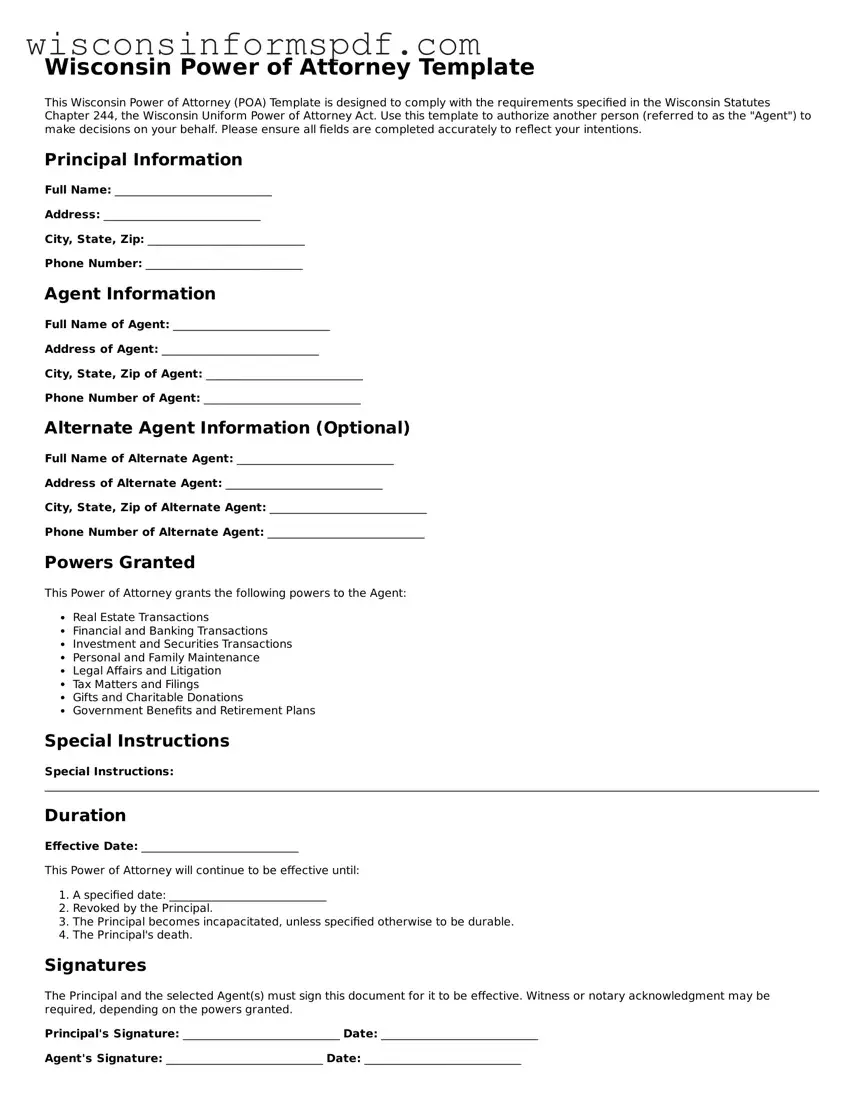Wisconsin Power of Attorney Template
This Wisconsin Power of Attorney (POA) Template is designed to comply with the requirements specified in the Wisconsin Statutes Chapter 244, the Wisconsin Uniform Power of Attorney Act. Use this template to authorize another person (referred to as the "Agent") to make decisions on your behalf. Please ensure all fields are completed accurately to reflect your intentions.
Principal Information
Full Name: ____________________________
Address: ____________________________
City, State, Zip: ____________________________
Phone Number: ____________________________
Agent Information
Full Name of Agent: ____________________________
Address of Agent: ____________________________
City, State, Zip of Agent: ____________________________
Phone Number of Agent: ____________________________
Alternate Agent Information (Optional)
Full Name of Alternate Agent: ____________________________
Address of Alternate Agent: ____________________________
City, State, Zip of Alternate Agent: ____________________________
Phone Number of Alternate Agent: ____________________________
Powers Granted
This Power of Attorney grants the following powers to the Agent:
- Real Estate Transactions
- Financial and Banking Transactions
- Investment and Securities Transactions
- Personal and Family Maintenance
- Legal Affairs and Litigation
- Tax Matters and Filings
- Gifts and Charitable Donations
- Government Benefits and Retirement Plans
Special Instructions
Special Instructions: __________________________________________________________________________________________________________________________________________________________________________________
Duration
Effective Date: ____________________________
This Power of Attorney will continue to be effective until:
- A specified date: ____________________________
- Revoked by the Principal.
- The Principal becomes incapacitated, unless specified otherwise to be durable.
- The Principal's death.
Signatures
The Principal and the selected Agent(s) must sign this document for it to be effective. Witness or notary acknowledgment may be required, depending on the powers granted.
Principal's Signature: ____________________________ Date: ____________________________
Agent's Signature: ____________________________ Date: ____________________________
Alternate Agent's Signature (if applicable): ____________________________ Date: ____________________________

